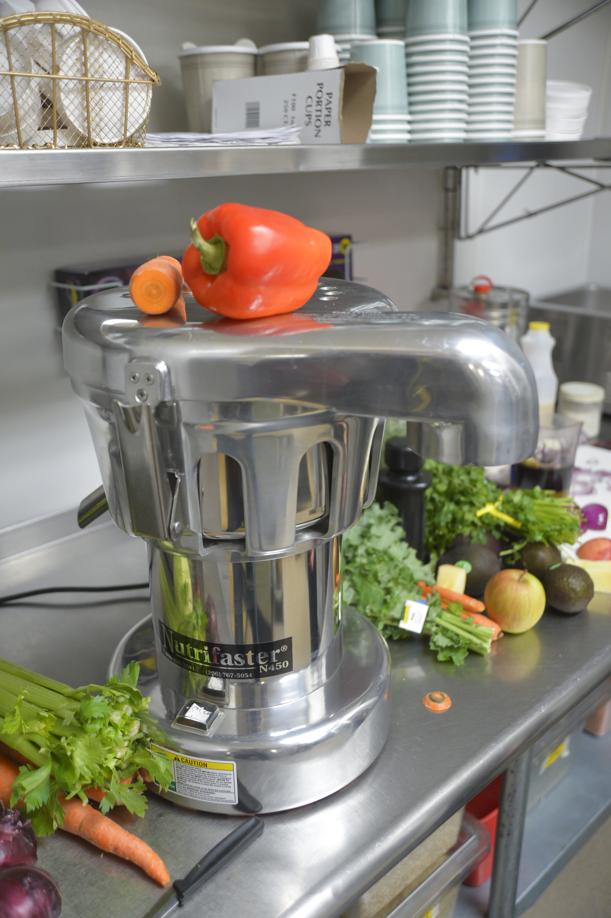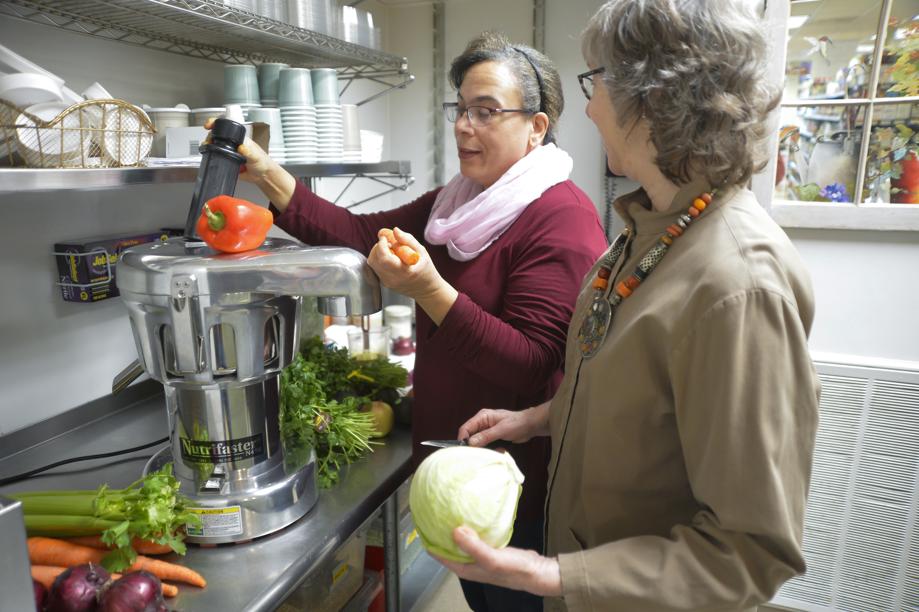


Debra Stark has been trying to fill one job at her Concord natural foods business for two years.
It’s a decent position — full time, $15 an hour, with health insurance and two weeks of paid vacation after two years — making fresh, organic juice and other food to sell at Debra’s Natural Gourmet. But despite running ads, reaching out to job-training nonprofits, offering rewards for referrals, and contacting cooking schools, she hasn’t been able to fill it.
And it’s not just that the unfilled job leaves Stark short-handed. Without this hire, she can’t launch a new arm of her business. Stark spent two years developing a raw juicing program: getting approval from the local board of health, buying the right bottles, designing labels, developing recipes for concoctions such as Replenish and Refuel, featuring beets, carrots, green apples, cucumber, celery, lemon, ginger, and turmeric.
With each 16-ounce bottle set to sell for $11.99 a pop, and the juicing craze going strong, sales could provide a nice bump in revenue.
“It would fill a need that we haven’t been able to fill,’’ Stark said.
But, like many employers dealing with the worker shortage gripping the country, she’s stuck. With nearly 6 million open jobs nationwide, a declining number of prime-age workers in the labor force, and the unemployment rate at its lowest level in 17 years, employers have been scrambling to find workers. Some are actively recruiting immigrants who barely speak English, ex-offenders, people with disabilities — anybody who can be trained. Stark has done all that, however, with no luck.
In her 28 years in business, Stark, who has 57 employees, has never had so much trouble finding workers. She has a few positions open, including one for an assistant kitchen manager that’s been unfilled for three years, but the juicing job is especially vexing.
Without this key position, Stark said, “we can’t launch the program, and can’t continue to grow.’’
The juicing job comes with a meal allowance, profit-sharing, and food safety training, but it also has several factors working against it. Namely, the shift starts at 5 a.m., which means an early start time and no access to the commuter rail, which doesn’t get going until later. Even if the shift started later, a worker would have to pay $9.25 one-way to take the train from Boston, likely beyond the reach of someone making $15 an hour. A small population and limited affordable housing around Concord also restricts the number of local job candidates.
Whoever Stark hires would also have to be someone she could trust with a key to the store, as he or she would be the first one in. The employee would also need to adhere to strict sanitation rules for handling raw fruits and vegetables.
Another kitchen worker, who is part of the local prison’s work-release program, is ready to fill a second juicing slot, but is not allowed to work alone.
Stark estimates that she dedicates five to 10 hours a week trying to fill open jobs. She has spent anywhere from $200 to $1,200 a month advertising on Indeed, ZipRecruiter, and Craigslist, but mostly gets inquiries from people who live out of state and want her to help pay their moving expenses, something she is unwilling to do.
In two years trying to find a juicer, Stark has set up roughly 30 interviews with candidates who never showed up, and met with fewer than 10 people.
Stark did hire one young woman, a “hot ticket,’’ but she left after a month to take a job at Yellowstone National Park. “We cried,’’ Stark said.
A Facebook check on one promising candidate turned up troubling behavior that took him out of the running; another potential hire ended up having a health issue that prevented her from working early in the morning.
When a nearby restaurant closed during the summer, Stark approached a woman in her 70s who had spent 35 years cooking there, starting at 4 a.m., but she declined because of concerns over navigating the stairs to the walk-in cooler.
Getting another person from the prison isn’t an option because Stark has found that having more than one work-release employee in the tiny kitchen can cause tension. Many of the immigrants studying English at Jewish Vocational Service in Boston, a major source of workers for several Boston-area food businesses, don’t have cars.
So Stark continues to look. In the meantime, $11,000 worth of juicing equipment, and her hopes of expansion, are languishing in taped-up boxes in the basement.
ª Position: Kitchen worker
ª Date posted: December 2015
ª Hours: Full time
ª Pay: $15 an hour
ª Benefits: Paid vacation, health insurance, profit sharing, meal allowance
ª Applicants: 50
ª Interviews scheduled: 40
ª Interviews conducted: Fewer than 10
Katie Johnston can be reached at katie.johnston@globe.com. Follow her on Twitter @ktkjohnston.



